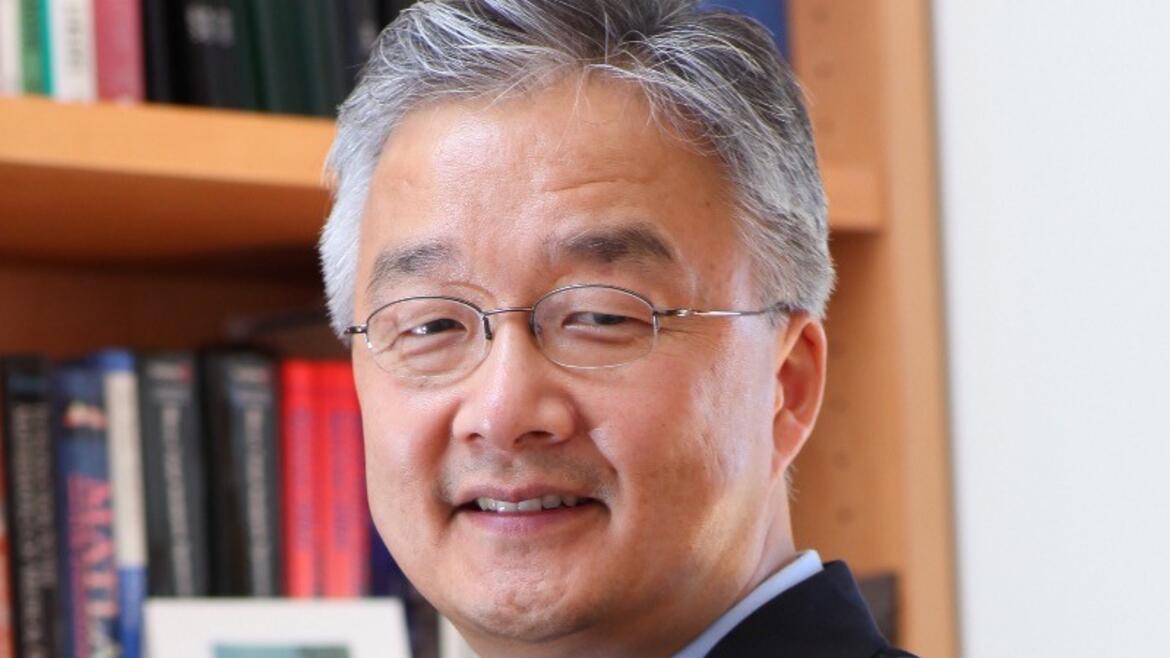Distinguished Seminar Speaker Professor Luke P. Lee

Title: Biomedical Innovations for Global Health Research and Technology:
BIGHEART
Abstract: This presentation will cover BIGHEART (Biomedical Innovations for Global Health Research and Technology)
and provide several illustrative examples of this approach. The first focus is NOAS (Nanoscale Optical
Antennas) in quantitative life sciences and transformative medicine. NOAS enables the visualization of
quantum biological electron transfer in mitochondria within living cells, aids in the precise release of siRNAs
with accurate spatiotemporal control, facilitates the detection of oscillatory communication among living
bacteria through extracellular vesicles, and creates ultrafast photonic PCR for enhanced precision and
preventive medicine. EXODUS (Exosome Detection via the Ultrafastpurification System) is designed for
accurate diagnostics and therapeutic applications via exosomes. Effectively purifying exosomes from
patients’ liquid biopsies allows for comprehensive analyses and the development of translational medical
treatments. iTEARS (integrated Tear Exosome Analysis via Rapidisolation System) enables the detection of
protein and miRNA biomarkers, facilitating the diagnosis of different diseases through tear sample analysis.
NAOMI (Nanoscale Acoustic Oscillator for Mechano-Immunology) presents mechanobiological approaches to
modulate immune cell functions. It offers insights into molecular forces affecting immune cell functions and
provides solutions for precisely adjusting immunoreceptors, including CAR T-cell mechanoimmunology. BOAS
(Brain Organoid Analysis System), which integrated biosensors and EEG, was developed to explore the links
between molecular and neurophysiological brainwaves. It examines and provides insights into the
relationship among secretomes, electrophysiological brainwaves, and networks generated from human brain
organoids. The in vitro models of BOAS assist researchers in investigating neuropathogenesis, finding
treatments for neurodegenerative diseases, and exploring preventive medical therapies by examining the
interactions between EVs and brainwaves. Finally, iACTS (Integrative Arts, Culture, Technology, and Science)
approach will be reviewed to determine its ability to revolutionize global healthcare. This study will
investigate how Pasteur's quadrant in science and technology can tackle intricate, real-world challenges. The
BIGHEART initiative seeks to create solutions for preventive and personalized medicine that contribute to
affordable global healthcare.
Biography: Luke P. Lee is a Professor at Harvard Medical School. He received his BA in Biophysics and Ph.D. in Applied Physics
and Bioengineering from UC Berkeley. He joined the faculty at UC Berkeley in 1999 after more than a decade of
industry experience. He became the Arnold and Barbara Silverman Distinguished Professor and the Lester John and
Lynne Dewar Lloyd Distinguished Professor at Berkeley. He also served as the Chair Professor in Systems
Nanobiology at ETH Zürich. He founded the Biomedical Institute for Global Healthcare Research & Technology
(BIGHEART). He served as Associate President for International Research and Innovation and Tan Chin Tuan
Centennial Professor at the National University of Singapore. He also founded the Institute for Quantum Biophysics
at Sungkyunkwan University, Korea. He has authored over 350 research articles, contributed to four book chapters,
and holds 60 international patents. He has been honored as a Fellow of the Royal Society of Chemistry and the
American Institute of Medical and Biological Engineering. He has received numerous awards, including the IEEE
William J. Morlock Award, NSF Career Award, Fulbright Scholar Award, and the HoAm Prize.